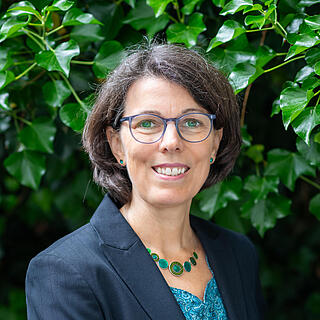The energy, mobility, land use and heat transitions – the major social projects which aim to preserve the environment, climate and resources – require not only individual innovations in the political and technological fields but change across the whole of society. The solutions should protect the climate, natural resources and biological diversity and must also be equitable, collectively supported and respectful of the needs of diverse social groups. For everyone to share in the benefits of a sustainable future, participation is key, and it is equally important to focus on disadvantages caused by factors such as low income, place of residence or gender and provide appropriate support for the persons who are most severely impacted.
The Oeko-Institut’s researchers analyse the need for policy action to make these transformations sustainable, equitable and participatory. They conduct research on aspects of participation in policy-making and planning processes and cooperate with civil society stakeholders in transdisciplinary research projects. They focus on potentially inequitable impacts of transition projects on diverse social groups and develop proposals to ease the burden on low-income households.
![[Translate to English:]](/fileadmin/_processed_/7/f/csm_DEEPO-by-plainpicture_Roberto-Westbrook_quadrat_ebf1a062c5.jpg)
![[Translate to English:] © plainpicture/Robert Pola](/fileadmin/_processed_/5/f/csm_Gerechte-Transformation-Governance_plainpicture-Robert-Pola_e410e9cf9a.jpg)
![[Translate to English:] © plainpicture/Tom Merton](/fileadmin/_processed_/5/b/csm_Gerechte-Transformation-Partizipation_plainpicture-TomMerton_7d8c502930.jpg)
![[Translate to English:] © plainpicture/Mischa Keijser](/fileadmin/_processed_/c/6/csm_Gerechte-Transformation-Soziale-Energiewende_plainpicture-Mischa-Keijser_a654c6bd44.jpg)
![[Translate to English:] © plainpicture/Esmeralda](/fileadmin/_processed_/1/b/csm_Gerechte-Transformation-Soziale-Mobilit%C3%A4tswende_plainpicture-Esmeralda_c2cec347b5.jpg)
![[Translate to English:] © plainpicture/Iris Loonen](/fileadmin/_processed_/9/2/csm_Gerechte-Transformation-Soziale-W%C3%A4rmewende_plainpicture-Iris-Loonen_cd07f832fd.jpg)
![[Translate to English:] © plainpicture / Daniel Allan](/fileadmin/_processed_/f/f/csm_Gerechte-Transformation-Transdisziplin%C3%A4re-Forschung_plainpicture-Daniel-Allan_abbe6f7766.jpg)









